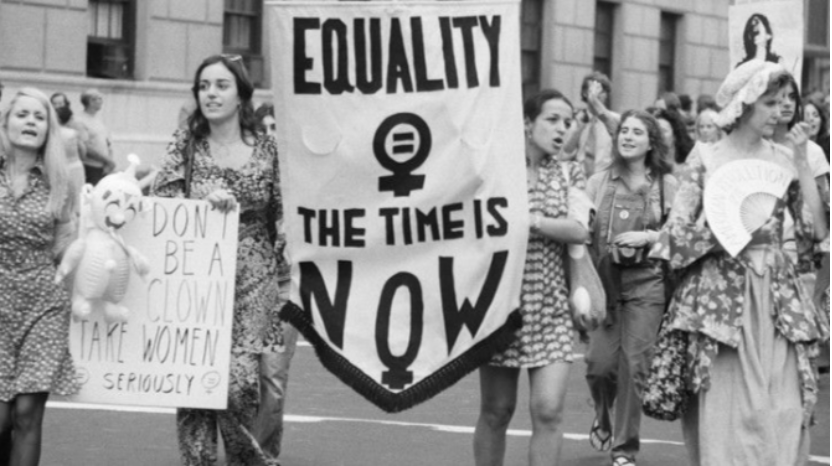This is an opinion article by one of our staff writers, and the opinions expressed here do not represent the views of the newspaper in general or of the leadership team.
As a generation that has been raised with an overarching standard of gender equality, many of us perceive modern-day feminism more so as to cling to fanaticism. After all, watching a woman spray bleach on an unsuspecting man’s pants for merely sitting in a wide-legged position is far more ludicrous than any of the issues for which they are advocating. However, the deep-rooted question several people currently ask themselves heavily weighs upon the notion of feminism as a whole. Is feminism outdated?
To fully grasp such a query, one must first realize how far the movement has come in a period of 150 years. The Feminist Movement is categorized into four separate waves or ranks, each of which occurs in distinct periods of social campaigning. The first wave, transpiring between the 1850s-1900s, argued that all women were entitled to the same fundamental liberties as men were. Furthermore, first-wave feminism supported the idea that married women were not the property of their husbands and possessed the ability to make suitable decisions on their own behalf, which subsequently led to their sanction to vote in 1919. Second-wave feminism, following shortly after WWII, addressed the social-political constructs that had long been imposed upon working women. The primary objective of this wave was to redefine women’s position in society and break free from the opinion that the sole purpose of their existence was to satisfy the needs of her household. These issues were furtherly expounded upon as the third wave of feminism emerged. During this period, lasting from the 1990s to 2010, debates over inequalities imposed by race, religion, and ethnicity sparked the overall empowerment of women as an entire gender. Mothers began to encourage their daughters to pursue careers previously seen as “men’s work” as society revised the definition of what it meant to be feminine.
As we circle back to the initial question, it is essential to note how feminism has evolved since the late 19th century. Today, the movement focuses less on the status of women in society and more upon how both genders, regardless of race, culture, religion, and identity, can coexist in a state of equal opportunity. While there are extremists that tarnish the movement’s credibility by advocating ideas of gender superiority, feminism has evolved to become more inclusive to all individuals. In fact, fourth-wave feminism utilizes the internet and media to provide a platform in which everyone can communicate their thoughts and opinions on any social or political construct they may find endearing. Online campaigns such as the “#Metoo” movement give everyone, particularly women, a forum for which they can share stories of their sexual abuse which has previously been swept under a rug of denial. So to answer the question simply, no, feminism is not outdated. The movement has since grown to advocate for members of all communities and heavily promotes fraternity between genders. Like all things, feminism is greater than the sum of its parts, or in this case, the actions of its members.
Works Cited:
Drucker, Sally Ann. “OH Blog and News.” Ohio Humanities, 2018, www.ohiohumanities.org/betty-friedan-the-three-waves-of-feminism/.
Abrahams, Jessica. “Everything You Wanted to Know about Fourth Wave Feminism-but Were Afraid to Ask.” Prospect Magazine Everything You Wanted to Know about Fourth Wave Feminismbut Were Afraid to Ask Comments, 14 Aug. 2017, www.prospectmagazine.co.uk/magazine/everything-wanted-know-fourth-wave-feminism.
Fetters, Ashley. “In Defense of Old-School Feminism.” The Atlantic, Atlantic Media Company, 13 Nov. 2018, www.theatlantic.com/family/archive/2018/11/forgotten-pro-family-feminists/575683/.



